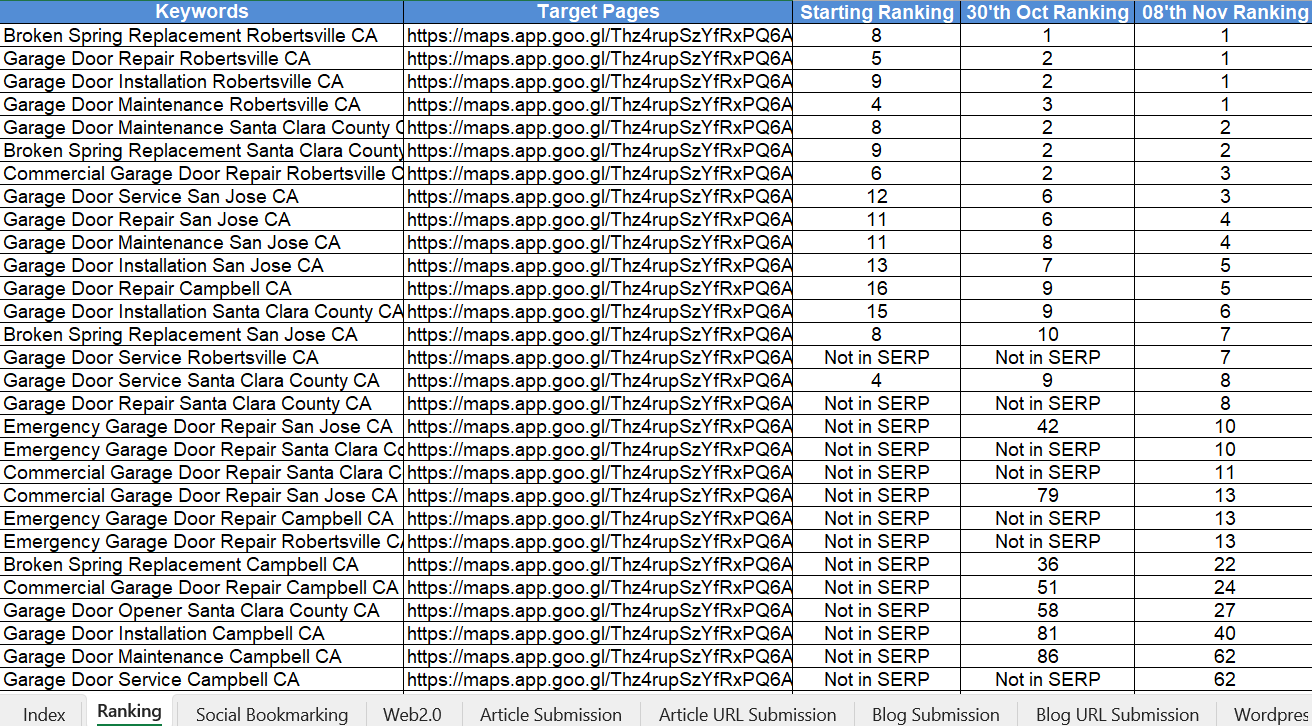How Digital Marketing and Advertising Agencies Adapt to Market Changes
How Digital Marketing and Advertising Agencies Adapt to Market Changes
Published on April 27, 2024 | By Market Wiz
The digital marketing and advertising landscape is in a constant state of flux, driven by technological advancements, evolving consumer behaviors, and shifting market dynamics. To remain competitive and deliver value to their clients, digital marketing and advertising agencies must be agile and adaptable. Market Wiz understands the importance of adapting to market changes and employs a variety of strategies to ensure sustained success in a dynamic industry. This blog explores the key ways agencies can adapt to market changes effectively.
1. Monitoring Market Trends
Staying Informed
Agencies must stay informed about the latest market trends, technological advancements, and changes in consumer behavior. Regularly monitoring industry reports, attending webinars, and participating in industry conferences help agencies stay ahead of the curve.
Competitive Analysis
Conducting competitive analysis enables agencies to understand what competitors are doing and identify gaps in the market. This insight allows agencies to differentiate their services and offer unique value propositions to clients.
Utilizing Trend Forecasting Tools
Leveraging trend forecasting tools and software can provide predictive insights into future market developments. These tools help agencies anticipate changes and prepare strategies accordingly.
2. Investing in Technology
Adopting the Latest Tools
Investing in the latest digital marketing tools and platforms enhances an agency’s ability to deliver effective campaigns. Tools for SEO, PPC, social media management, and analytics provide agencies with the capabilities to optimize and measure their efforts accurately.
Automation and Efficiency
Marketing automation tools streamline repetitive tasks such as email marketing, social media posting, and reporting. This increases operational efficiency and allows teams to focus on strategic initiatives and creative work.
Embracing Artificial Intelligence
Artificial Intelligence (AI) and machine learning can significantly enhance marketing strategies. AI-powered tools can analyze vast amounts of data, predict consumer behavior, and personalize marketing efforts, providing agencies with a competitive edge.
3. Continuous Learning and Training
Professional Development
Continuous learning ensures that agency teams are up-to-date with the latest marketing techniques and best practices. Investing in training programs, certifications, and workshops enhances team skills and knowledge.
Encouraging Knowledge Sharing
Fostering a culture of knowledge sharing within the agency promotes collaboration and innovation. Regular team meetings, brainstorming sessions, and internal workshops encourage the exchange of ideas and expertise.
Staying Agile
Agencies must remain agile to quickly adapt to new information and changing market conditions. Encouraging a growth mindset and flexibility within teams helps agencies pivot strategies effectively when needed.
4. Agile Methodology
Iterative Processes
Adopting an agile methodology allows agencies to implement iterative processes, enabling continuous improvement and timely adjustments to campaigns. This approach enhances responsiveness and ensures that strategies remain aligned with client goals and market conditions.
Cross-Functional Teams
Agile promotes the formation of cross-functional teams that collaborate closely on projects. This collaboration ensures that diverse perspectives are considered, leading to more comprehensive and effective marketing solutions.
Flexible Project Management
Agile project management tools and techniques facilitate flexibility and adaptability. By breaking projects into smaller, manageable tasks, agencies can quickly address challenges and capitalize on opportunities as they arise.
5. Client Communication
Regular Updates
Maintaining open and regular communication with clients is essential for adapting to their evolving needs. Providing frequent updates on campaign performance, market insights, and strategic adjustments ensures that clients are informed and engaged.
Feedback Loops
Implementing feedback loops allows agencies to gather client input and make necessary adjustments. This collaborative approach ensures that marketing strategies remain aligned with client objectives and expectations.
Transparency
Being transparent about processes, results, and challenges builds trust and fosters long-term client relationships. Transparency ensures that clients understand the value agencies provide and are confident in their ability to adapt to market changes.
6. Diversifying Service Offerings
Expanding Capabilities
Agencies can diversify their service offerings to meet the changing needs of clients. Expanding into new areas such as influencer marketing, video production, or experiential marketing allows agencies to offer comprehensive solutions.
Bundling Services
Offering bundled services can provide clients with more value and simplify their marketing efforts. Bundling complementary services such as SEO, PPC, and content marketing creates integrated strategies that drive better results.
Custom Solutions
Providing custom solutions tailored to each client's unique needs ensures that marketing strategies are effective and relevant. Customization allows agencies to address specific challenges and opportunities, enhancing client satisfaction and success.
7. Data-Driven Decision Making
Leveraging Analytics
Utilizing data analytics helps agencies make informed decisions and optimize marketing strategies. Analyzing data from various sources provides insights into campaign performance, audience behavior, and market trends.
Performance Metrics
Establishing clear performance metrics allows agencies to measure the success of their strategies. Tracking key performance indicators (KPIs) such as conversion rates, ROI, and engagement levels ensures that marketing efforts are effective and aligned with goals.
Predictive Analytics
Predictive analytics uses historical data and machine learning to forecast future trends and behaviors. This allows agencies to anticipate market changes and proactively adjust strategies to stay ahead.
8. Fostering Innovation
Encouraging Creative Thinking
Creating an environment that encourages creative thinking and experimentation fosters innovation. Agencies should empower their teams to explore new ideas, test innovative approaches, and embrace creative solutions.
Innovation Labs
Setting up innovation labs or dedicated teams focused on research and development can drive continuous innovation. These labs can explore emerging technologies, develop new marketing techniques, and pilot innovative campaigns.
Collaborative Projects
Collaborating with clients, partners, and industry experts on projects can spark new ideas and approaches. Collaborative efforts enhance creativity and lead to the development of cutting-edge marketing solutions.
9. Leveraging Partnerships
Strategic Alliances
Forming strategic alliances with technology providers, creative agencies, and other industry partners can enhance an agency's capabilities. Partnerships provide access to new tools, expertise, and resources that support adaptability.
Vendor Relationships
Maintaining strong relationships with vendors ensures that agencies have access to the latest technologies and services. Reliable vendor partnerships enable agencies to quickly adopt new tools and stay competitive.
Industry Networks
Participating in industry networks and associations allows agencies to stay connected with peers, share knowledge, and collaborate on initiatives. These networks provide valuable insights and support for adapting to market changes.
10. Flexible Business Models
Adaptable Pricing Structures
Offering flexible pricing structures such as retainer models, project-based pricing, or performance-based fees allows agencies to accommodate different client needs and market conditions.
Scalable Services
Developing scalable services ensures that agencies can adjust their offerings based on client demand and market trends. Scalability allows agencies to efficiently manage resources and respond to growth opportunities.
Remote and Hybrid Work Models
Adopting remote or hybrid work models enhances an agency's flexibility and resilience. These models allow agencies to tap into a broader talent pool, reduce overhead costs, and maintain operations during unforeseen disruptions.
11. Adapting Marketing Strategies
Agility in Campaigns
Being agile in campaign management allows agencies to quickly adjust strategies based on real-time data and market feedback. This responsiveness ensures that marketing efforts remain effective and aligned with current trends.
Multi-Channel Integration
Integrating multiple marketing channels provides a cohesive and comprehensive approach. Agencies should ensure that strategies across different channels are synchronized to deliver a unified message and maximize impact.
Personalization and Customization
Personalizing marketing efforts based on audience data and preferences enhances engagement and effectiveness. Customizing campaigns to address specific client needs ensures that marketing strategies are relevant and impactful.
12. Maintaining Customer-Centricity
Understanding Client Needs
Focusing on understanding and addressing client needs ensures that marketing strategies are aligned with their goals and expectations. Regularly engaging with clients to gather feedback and insights helps agencies tailor their services effectively.
Enhancing User Experience
Prioritizing user experience in all marketing efforts enhances customer satisfaction and loyalty. Agencies should focus on creating intuitive, engaging, and seamless experiences across all touchpoints.
Building Long-Term Relationships
Building long-term relationships with clients fosters trust and collaboration. Agencies should strive to become trusted partners by consistently delivering value and adapting to clients' evolving needs.
13. Managing Resources Efficiently
Optimizing Team Structure
Optimizing team structure ensures that resources are allocated effectively. Agencies should assess team roles and responsibilities regularly to ensure that they align with current project needs and market demands.
Outsourcing and Freelancing
Outsourcing specialized tasks or hiring freelancers can provide flexibility and access to diverse expertise. This approach allows agencies to scale their operations and adapt to varying project requirements efficiently.
Resource Allocation Tools
Utilizing resource allocation tools helps agencies manage their workforce, track project progress, and ensure that resources are used optimally. These tools enhance productivity and support effective decision-making.
14. Embracing Sustainability
Eco-Friendly Practices
Adopting eco-friendly practices demonstrates a commitment to sustainability and can resonate with environmentally conscious clients. Agencies can implement green initiatives such as reducing paper use, optimizing energy consumption, and promoting digital solutions.
Corporate Social Responsibility (CSR)
Engaging in CSR activities enhances an agency's reputation and aligns its values with those of clients and consumers. Participating in community projects, supporting charitable causes, and promoting ethical practices contribute to a positive brand image.
Long-Term Sustainability Planning
Developing long-term sustainability plans ensures that agencies can operate responsibly and adapt to future environmental and social challenges. Sustainable planning includes setting goals, measuring impact, and continuously improving practices.
15. Corporate Culture
Fostering a Positive Work Environment
A positive corporate culture promotes employee satisfaction, retention, and productivity. Agencies should create an inclusive, supportive, and motivating work environment that encourages collaboration and innovation.
Encouraging Collaboration
Encouraging collaboration among team members enhances creativity and problem-solving. Agencies can implement collaborative tools, organize team-building activities, and promote open communication to foster a collaborative culture.
Recognizing and Rewarding Excellence
Recognizing and rewarding employees' efforts and achievements boosts morale and motivates teams to perform at their best. Agencies should implement recognition programs and provide opportunities for professional growth and development.
16. Anticipating Future Trends
Research and Development
Investing in research and development (R&D) helps agencies anticipate future trends and prepare for upcoming market shifts. Agencies should allocate resources to explore emerging technologies, marketing techniques, and industry innovations.
Scenario Planning
Scenario planning involves envisioning different future scenarios and developing strategies to address each possibility. This proactive approach enables agencies to be prepared for various market conditions and respond effectively to changes.
Innovative Pilot Programs
Launching innovative pilot programs allows agencies to test new ideas and strategies on a smaller scale before implementing them broadly. Pilots provide valuable insights and data that inform larger-scale adaptations.
17. Managing Risk
Identifying Potential Risks
Agencies must identify potential risks associated with market changes, such as economic downturns, regulatory shifts, or technological disruptions. Conducting risk assessments helps agencies understand vulnerabilities and develop mitigation strategies.
Developing Contingency Plans
Having contingency plans in place ensures that agencies can respond swiftly and effectively to unforeseen challenges. These plans outline the steps to be taken in various risk scenarios, minimizing impact on operations and client projects.
Insurance and Legal Protections
Securing appropriate insurance and legal protections safeguards agencies against potential liabilities and financial losses. Agencies should consult with legal and insurance professionals to ensure comprehensive coverage.
18. Enhancing Employee Engagement
Promoting Work-Life Balance
Promoting work-life balance helps maintain employee well-being and reduces burnout. Agencies can implement flexible work schedules, remote work options, and wellness programs to support their teams.
Providing Growth Opportunities
Offering opportunities for professional growth and development enhances employee satisfaction and retention. Agencies should invest in training programs, mentorship, and career advancement initiatives to empower their workforce.
Encouraging Employee Feedback
Encouraging and valuing employee feedback fosters a sense of ownership and involvement. Agencies can implement regular feedback mechanisms, such as surveys and one-on-one meetings, to understand employee needs and improve workplace practices.
19. Measuring Success
Setting Clear Objectives
Setting clear, measurable objectives ensures that agencies can evaluate the effectiveness of their adaptation strategies. Objectives should be specific, achievable, relevant, and time-bound (SMART).
Tracking Key Performance Indicators (KPIs)
Tracking KPIs provides insights into the success of marketing efforts and operational changes. Agencies should identify and monitor relevant KPIs that align with their business goals and adaptation strategies.
Continuous Improvement
Embracing a culture of continuous improvement allows agencies to refine their strategies based on performance data and feedback. Regularly reviewing and adjusting approaches ensures sustained growth and adaptability.
20. Conclusion
Adapting to market changes is essential for the sustained success of digital marketing and advertising agencies. By monitoring market trends, investing in technology, fostering a culture of continuous learning and innovation, and maintaining strong client relationships, agencies like Market Wiz can navigate the dynamic digital landscape effectively. Embracing agility, leveraging data-driven insights, and prioritizing customer-centricity ensures that agencies remain competitive and continue to deliver exceptional value to their clients.
At Market Wiz, we are committed to helping your business thrive amidst market fluctuations. Our adaptive strategies, expert team, and dedication to innovation ensure that your digital marketing efforts are always aligned with the latest industry trends and client needs. Partner with Market Wiz to navigate market changes confidently and achieve unparalleled growth and success.
Frequently Asked Questions (FAQs)
1. Why is adaptability important for digital marketing and advertising agencies?
Adaptability allows agencies to respond effectively to changing market trends, consumer behaviors, and technological advancements, ensuring sustained success and competitive advantage.
2. What are common market changes that agencies need to adapt to?
Common market changes include shifts in consumer preferences, technological innovations, regulatory updates, economic fluctuations, and evolving digital platforms.
3. How can agencies stay ahead of market trends?
Agencies can stay ahead by continuously researching industry trends, investing in professional development, leveraging data analytics, and fostering a culture of innovation and flexibility.
4. What role does technology play in agency adaptability?
Technology enables agencies to implement new strategies, streamline operations, enhance client services, and stay competitive by adopting the latest tools and platforms.
5. How do digital marketing agencies respond to economic downturns?
Agencies may adjust their service offerings, optimize budgets, focus on high-ROI strategies, and enhance client relationships to navigate economic downturns effectively.
6. What strategies can agencies use to foster innovation?
Agencies can foster innovation by encouraging creative thinking, investing in new technologies, collaborating with diverse teams, and maintaining an open-minded approach to new ideas.
7. How important is client feedback in adapting to market changes?
Client feedback is crucial as it provides insights into client needs, preferences, and satisfaction, enabling agencies to tailor their services and strategies accordingly.
8. What is the impact of regulatory changes on digital marketing agencies?
Regulatory changes can affect data privacy, advertising standards, and operational practices. Agencies must stay informed and adjust their strategies to remain compliant and maintain trust.
9. How do agencies use data analytics to adapt to market changes?
Data analytics provides actionable insights into market trends, campaign performance, and consumer behavior, allowing agencies to make informed decisions and optimize their strategies.
10. What role does team flexibility play in agency adaptability?
Team flexibility allows agencies to quickly pivot strategies, adopt new roles, and embrace changes, ensuring that they can meet evolving client needs and market demands effectively.
11. Can specialization help agencies adapt to market changes?
Yes, specialization allows agencies to develop deep expertise in specific areas, making it easier to adapt to niche market changes and offer tailored solutions to clients.
12. How do agencies maintain a competitive edge in a rapidly changing market?
Agencies maintain a competitive edge by continuously innovating, investing in employee training, leveraging the latest technologies, and delivering exceptional client value.
13. What is the importance of continuous learning for agency teams?
Continuous learning ensures that agency teams are up-to-date with the latest industry trends, tools, and best practices, enabling them to adapt and deliver high-quality services.
14. How do agencies prioritize changes when adapting to the market?
Agencies prioritize changes based on their impact on client success, alignment with business goals, feasibility, and the potential return on investment.
15. What role does client communication play in adapting to market changes?
Effective client communication ensures transparency, fosters trust, and allows agencies to align their adaptation strategies with client expectations and needs.
16. How can agencies leverage partnerships to adapt to market changes?
Agencies can leverage partnerships to access new technologies, expand service offerings, gain industry insights, and enhance their ability to respond to market changes collaboratively.
17. What is agile methodology and how does it help agencies adapt?
Agile methodology involves iterative planning, flexible responses to changes, and continuous improvement. It helps agencies adapt by allowing them to quickly adjust strategies and deliver incremental value.
18. How do digital marketing agencies measure the effectiveness of their adaptation strategies?
Agencies measure effectiveness through key performance indicators (KPIs), client feedback, campaign performance metrics, and overall business growth indicators to assess how well their adaptation strategies are working.
19. What challenges do agencies face when adapting to market changes?
Challenges include resistance to change within the organization, keeping up with rapid technological advancements, maintaining consistent client communication, and ensuring that adaptation strategies align with business goals.
20. How can Market Wiz help digital marketing agencies adapt to market changes?
Market Wiz offers tailored consulting services, innovative marketing strategies, training programs, and advanced technological solutions to help digital marketing agencies effectively adapt to market changes and maintain their competitive edge.
Additional Keywords for Your Digital Marketing Agency Website
- Adaptable Digital Marketing Agency
- Marketing Agency Agility
- Digital Marketing Adaptation Strategies
- Market Wiz Digital Strategies
- Advertising Agency Flexibility
- Innovative Marketing Solutions
- Agile Marketing Agency
- Market Trend Analysis
- Digital Transformation Marketing
- Responsive Marketing Strategies
- Market Wiz Advertising Services
- Data-Driven Marketing Adaptation
- Technology Integration Marketing
- Continuous Learning Marketing Agency
- Creative Marketing Solutions
- Collaborative Marketing Agency
- Flexible Marketing Models
- Proactive Marketing Strategies
- Market Wiz Innovation
- Strategic Marketing Partnerships
- Scalable Marketing Services
- Customer-Centric Marketing
- Performance Tracking Marketing
- Risk Management Marketing Agency
- Employee Engagement Marketing
- Sustainable Marketing Practices
- Brand Agility
- Marketing Automation Adaptation
- Agile Project Management Marketing
- Future-Proof Marketing Strategies
- Market Wiz Competitive Edge
How Digital Marketing and Advertising Agencies Adapt to Market Changes Read More »





